The Transgender Festival At Koovagam- A Celebration Of Differences!
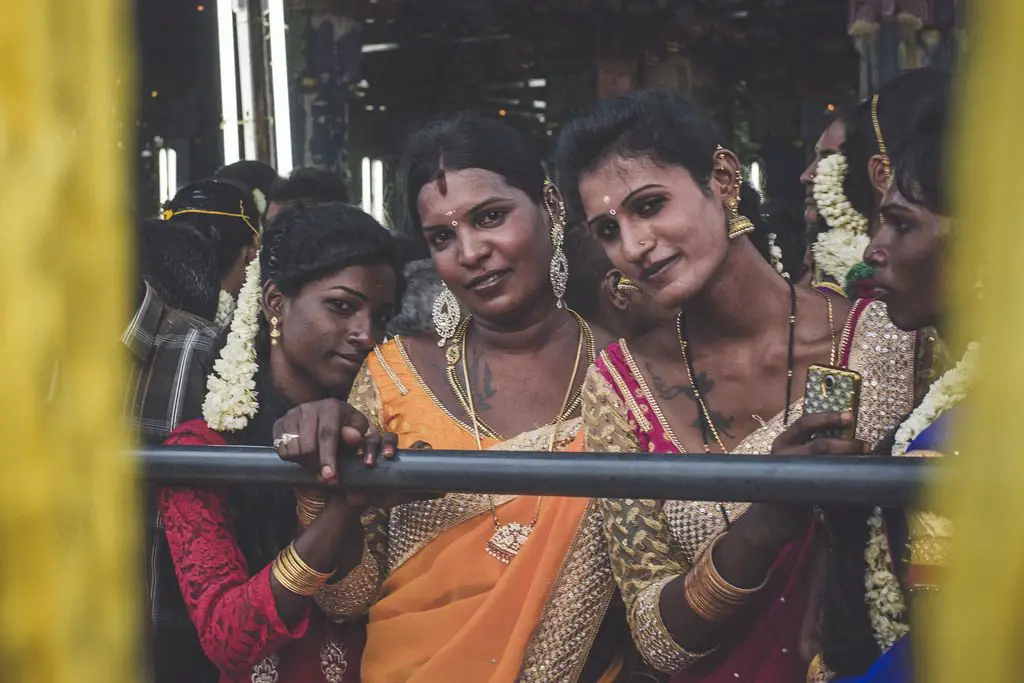
Koovagam- a small bustling village in Villupuram district, Tamil Nadu is known for its famous annual transgender festival which takes place in the first fifteen days of the Tamil calendar (April/May).
The Koothandavar Temple dedicated to Lord Aarvan/Iravan is a golden and sacred place for the Indian transgenders to feel humane and find some dignity in the society.
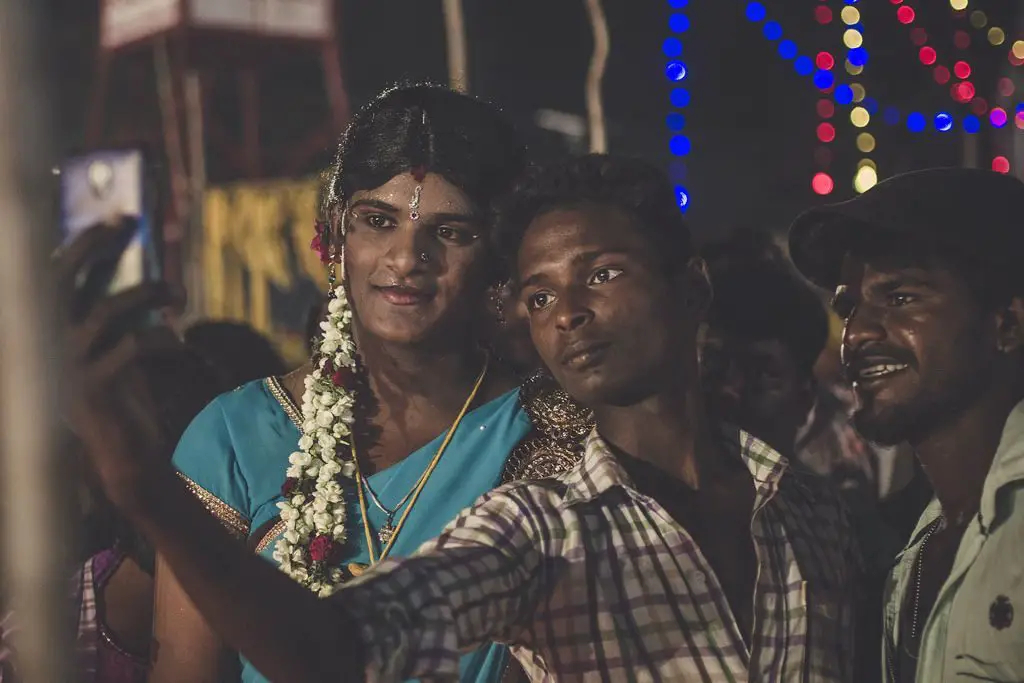
A number of people attend this transgender festival where various programs are conducted for the entertainment purposes of the transgenders, the locals and the tourists.
The first 16 days are full of fun with festivities like a beauty pageant, singing and dancing contests, plays regarding AIDS awareness and health care seminars, while on the 17th day, thousands of transgenders visit Koovagam to marry Lord Aarvan and be his bride for one day. The next day marks the end of the festival where the one-day transgender brides are widowed, as the sacrificial beheading of Lord Aarvan takes place.
Lord Aarvan is one of the important deities in the epic Mahabharata and an influential character who is often worshipped by the Aravani or the Hijra community.
The story hails from a particular incident that took place in Mahabharata.
Lord Aarvan was the son of Prince Arjuna of Pandava and princess Ulupi of Naga. Aarvan has been portrayed as a minor character who sacrificed his life for a great cause in the Mahabharata. It is so that, in order to find the good omens Lord Krishna entitled the Pandavas to win the Kurukshetra war against the Kauravas. So in order to win the war, Lord Krishna determined to sacrifice a male to Goddess Kali. Four people were determined worthy of the sacrifice, they were: Lord Krishna himself, Arjuna, Shalya and Aarvan.
Further, Aarvan offered his service but wanted Lord Krishna to fulfill his last wish before being sacrificed. Aarvan requested that he wanted to marry before his death. Lord Krishna granted his wish, but no woman was willing to marry Aarvan and be widowed the next day. So Lord Krishna took his Mohini avatar and married Aarvan. It is said that when Aarvan died, Mohini expressed her grief by weeping, lamenting and wailing.
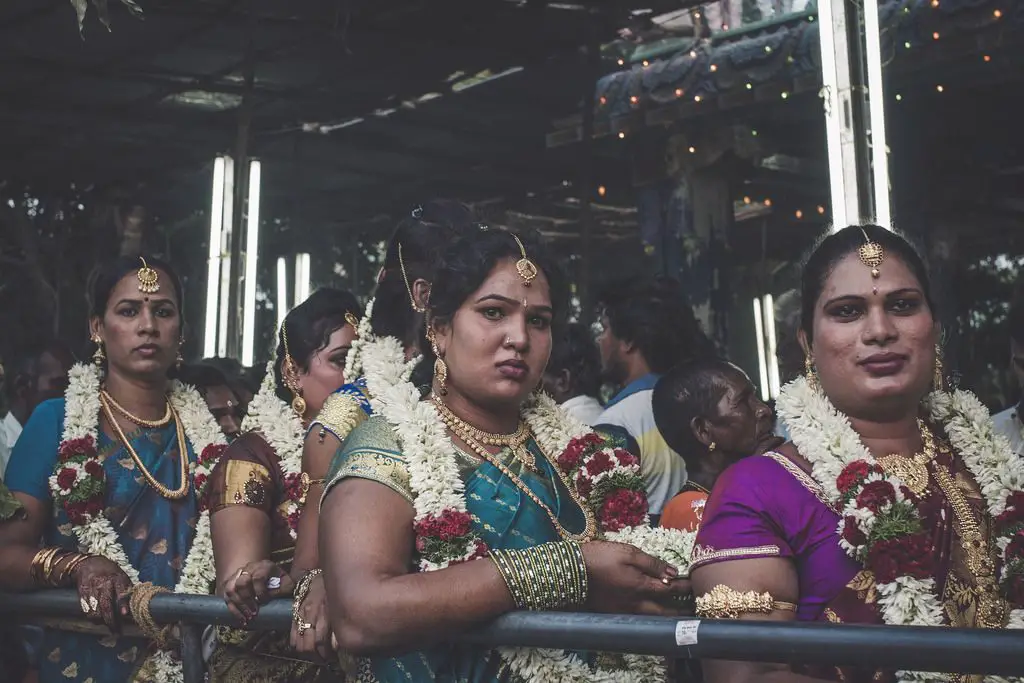
Today a number of transgenders consider themselves as Mohini- a woman trapped inside a male body and marry and worship Lord Aarvan.
As the evening descends, the brides are all clad in sarees, jewellery and garlands and are ready to be wife to Lord Aarvan.
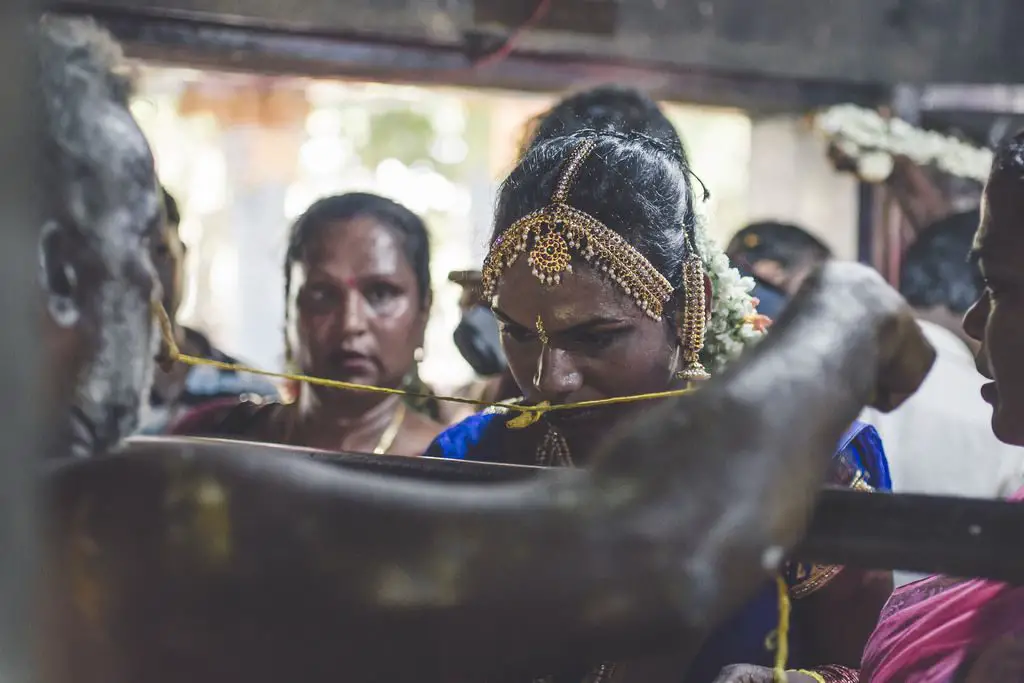
The marriage takes place inside and outside the temple. Outside, a number of small fires are lit where on behalf of Aarvan, the temple priest ties a taali (mangalsutra) a turmeric coated thread around the Aarvanis, which binds them into the sacred bond of marriage.
As the night ascends, the sound of joy and laughter fills the air and the brides are seen celebrating and being themself for a night by outdoing every societal norm.
The next day, when Aarvan was sacrificed, Mohini was widowed and mourned for the loss of her husband. Similarly, the Aarvanis too had to follow the ritual of widowhood.
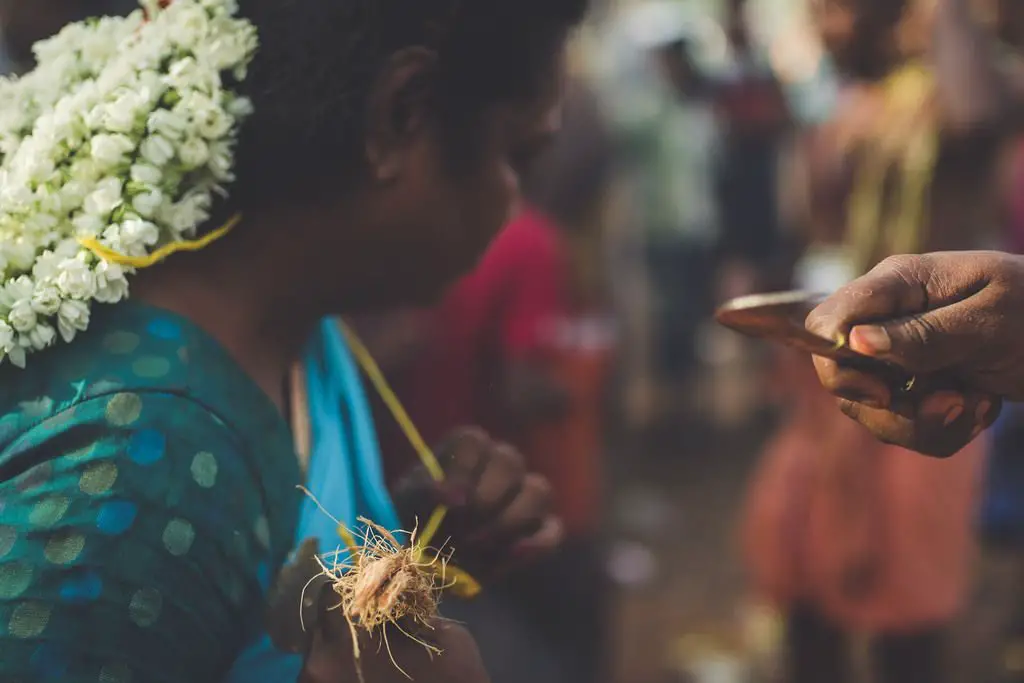
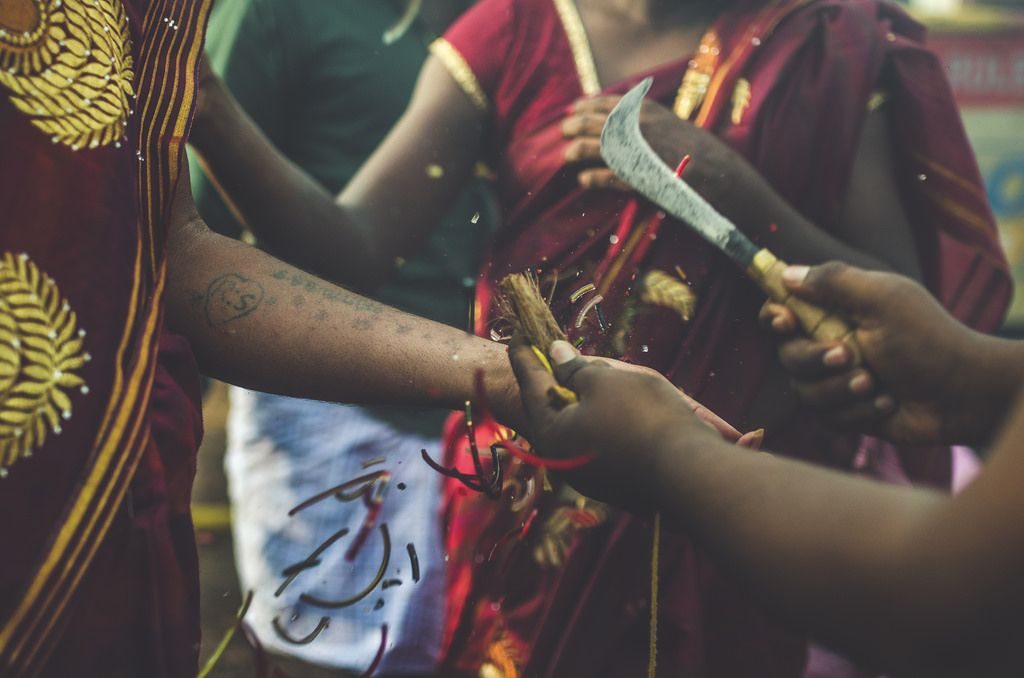
But before the beheading of Lord Aarvan, the brides enjoy their last-minute happiness by singing and dancing. Later, their chains and garlands are snatched away, their bangles are broken and the sacred sindoor is also washed off from their forehead.
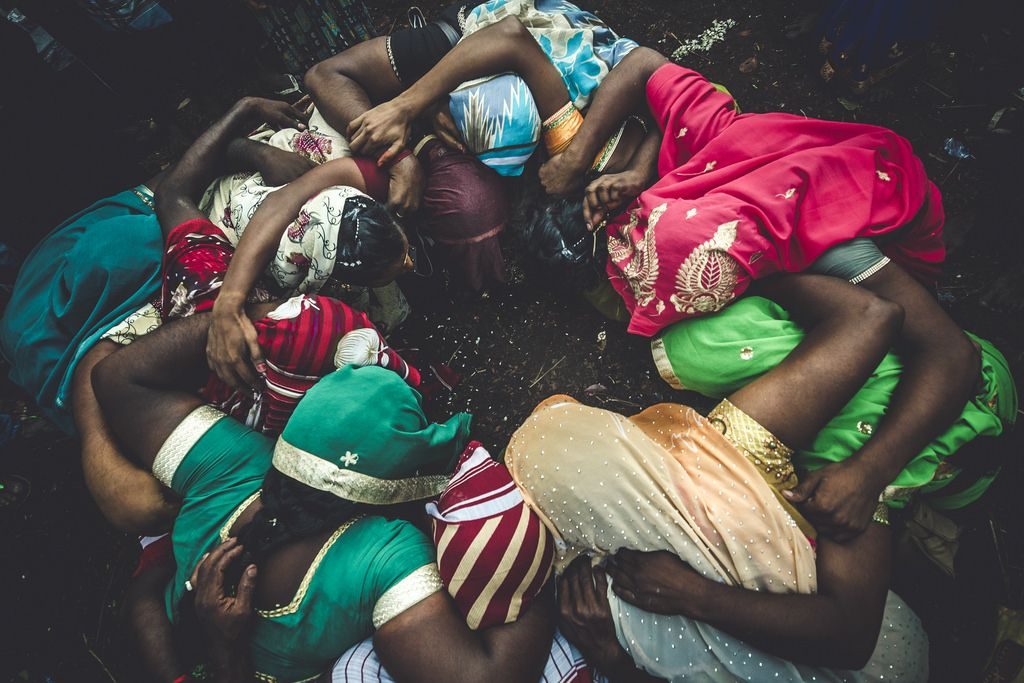
In the final mark, the Aarvanis clad themself in white sarees and mourn just like Mohini by beating their chest and waving their hair.



